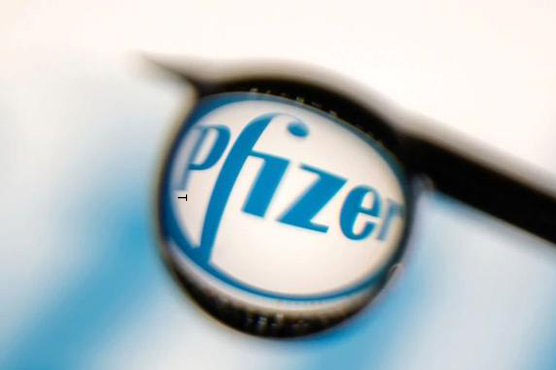Fact Check - Pfizer's trial COVID19 drug is not the same as ivermectin

Fact Check-Pfizer's trial COVID19 drug is not the same as ivermectin
(Reuters) - An article shared hundreds of times on social media claims a new COVID-19 preventative drug being trialed by Pfizer is “suspiciously similar” to ivermectin, an anti-parasitic medication that the World Health Organization (WHO), European and United States regulators have not recommended for treating the disease. However, Pfizer and an independent virologist told Reuters the two drugs function differently.
Social media users have shared the Sept. 28 article, published by financial market website Zero Hedge, hundreds of times.
Ora ora!? Quem diria??
— Luiz Nunes (@lnunesjr) September 29, 2021
Todo mundo!
Coincidentally (or not), Pfizer s drug shares at least one mechanism of action as Ivermectin ... which researchers speculate "could be the biophysical basis behind its antiviral efficiency."https://t.co/CEz6t4woBB
Some suggested Pfizer planned to launch a rebranded ivermectin: “It s official now - Pfizer will launch unpacked #ivermectin for of course significantly higher amounts than the medicine has been available so far,”.
Pfizer announced on Sept. 27 the start of phase 2/3 trials of its new antiviral medicine, known as PF-07321332, for the prevention of SARS-CoV-2 infection.
The following day, Zero Hedge published its article comparing PF-07321332 to ivermectin, claiming the two drugs share “at least one mechanism of action”. It referenced ivermectin’s qualities as a “protease inhibitor” and Pfizer’s description of PF-07321332 as a “potent protease inhibitor”.
The widely shared article adds: “That’s exactly what ivermectin, the prophylactic used for a number of reasons in both humans and animals, does”.
Including a screenshot of Pfizer’s March 23 press release on phase 1 of the drug’s trial, Zero Hedge then compares the language in a report about ivermectin in the Future Virology Journal. It highlights Pfizer’s description of PF-07321332 as a "protease inhibitor" with journal’s description of ivermectin as a "blocker of viral replicase, protease and human TMPRSS2".
However, this comparison lacks context, according to experts who spoke to Reuters.
“Pfizer’s drug has protease inhibitor activity like ivermectin, but they are a very different kettle of fish on a variety of levels,” said Dr Cheryl Walter, a virologist at the University of Hull.
Ivermectin formulations have been approved in the U.S. for use as an anti-parasitic in animals, according to the U.S. Food and Drug Administration (FDA). It adds that for humans, specific ivermectin doses are approved to treat some parasitic worms, while topical formulations can be used for external parasitic conditions, such as headlice.
Despite the article’s claims Ivermectin has saved “thousands” of COVID-19 patients’ lives, an FDA consumer update says (here “Currently available data do not show ivermectin is effective against COVID-19. Clinical trials assessing ivermectin tablets for the prevention or treatment of COVID-19 in people are ongoing."
Dr Walter explained that PF-07321332 is a “direct acting antiviral drug”, while ivermectin “has multiple mechanisms of action on animal and human cells as well as some serendipitous antiviral activity”.
This means ivermectin likely has a range of “off-target effects on animal/human proteins,” Dr Walter said, adding: “We know it has multiple mechanisms of action and some of these actions could have unwanted, even dangerous side effects.
“What Pfizer have done is create a drug with a single job - stop the SARS-CoV-2 protease.”
A Pfizer spokesperson also denied the connection between the drugs, telling Reuters in an email: “Pfizer’s protease inhibitor is not similar to that of an animal medicine and is not the same mechanism.”
They added: “For COVID-19, protease inhibitors are designed to block the activity of the SARS-CoV-2 protease, which is an enzyme the virus needs to multiply and replicate itself in the body, and as a result, stop symptoms from worsening.
“Applying this powerful and potent mechanism of action to COVID-19 could alter the course of the pandemic.”
VERDICT
Missing context. The two drugs are different and do not use the same mechanism.
This article was produced by the Reuters Fact Check team. Read more about our fact-checking work here .

